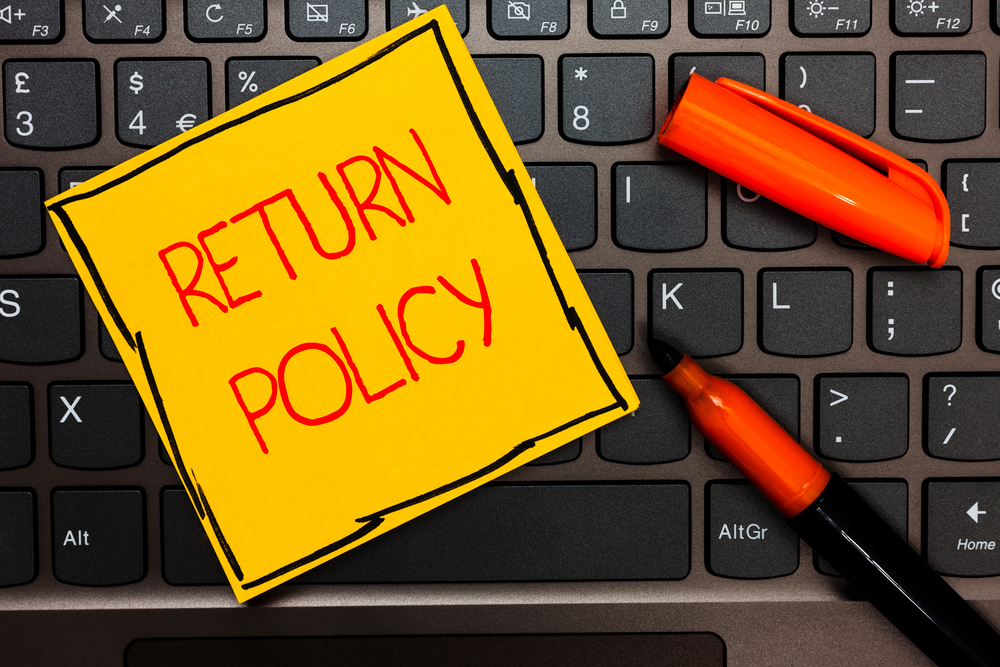
How to Prevent Rogue Affiliates from Derailing Your Business
Mar 3, 2021 6 minute read
The affiliate marketing growth strategy has been around for decades. Business owners have long loved the simplicity and low-risk nature of only having to pay out a marketing expense after an affiliate makes a sale.
However, it’s no longer quite as win-win as it might seem.
What was once one of the lowest-risk forms of marketing and advertising has since become rife with fraud and underhanded tactics that could leave your merchant account, payment processing, and your entire business in jeopardy.
In fact, in a recent episode of Uncensored Direct Marketing with Maria Sparagis, millionaire copywriter Julian Reyes revealed that he got so badly burned by his affiliates that he was moving away from this marketing channel altogether.
So, let’s take a look at why affiliates stray into illegal and fraudulent activities, and how you can prevent those with bad intentions from derailing your business.
Why Do Affiliates for Your Online Business Go Rogue?
While there may be several nuances as to why an affiliate might start defrauding you or your customers, there is usually one principle underlying reason – money. No matter the scam they are running, it’s almost always a scheme to enrich themselves, other criminal entities, or even competitors in your niche!
There are many different ways an affiliate can stray into problematic practices that land you in hot water. Some affiliates may only be guilty of overselling your product in order to gain commission payments. Another common problem, particularly in the weight loss and supplement business sector, is making specific medical claims about certain ingredients that simply aren’t true, landing merchants in trouble with both the FTC and FDA.
However, many others are a lot more sinister.
Some will use underhanded marketing tactics like unsolicited email and SMS campaigns that violate the CAN-SPAM Act and will land your company with a growing pile of lawsuits (as was the case with Julian). Other devious affiliates will use software programs they’ve developed to send you a blend of real and fake transactions (purchases made with stolen card data) to hide their fraudulent activities.
Some affiliates even sign up to a program to digitally launder money gained from selling illicit products. That’s without mentioning the entire network of affiliate fraud rings in existence. It’s a pretty seedy world in affiliate marketing to the uninitiated, so let’s take a closer look at what the repercussions are for poorly managed affiliates.
What Are the Consequences for High-Risk Merchants That Fail to Keep Close Tabs on Their Affiliates?
As we’ve already touched upon, litigation is a genuine threat. When affiliates engage in reckless and illegal behavior, it’s you, the merchant, that attorneys will come after, not the affiliate.
Worse, if you are in the dietary supplement space, you could end up in trouble with both the FDA and FTC. The past is littered with high-profile FTC settlements involving businesses that relied heavily on affiliate marketers and brand ambassadors to generate sales.
So civil lawsuits and regulatory fines aside (yes, it gets worse!), there are several other problems that strike right at the engine room of your business – your payment processing.
Here are just a few of the impacts that affiliate fraudsters can have on your business:
- Loss of revenue – Chargebacks drain the funds associated with that sale from your bank account.
- Loss of product or service – Just as you lose the revenue, you’ll also lose out on the service or product, which you will likely never see again.
- Higher chargeback ratios – More chargebacks mean higher chargeback ratios, which could see you fined if you go over allowable thresholds.
- Chargeback fees – A fee comes with each chargeback (usually at least $25). That’s on top of the revenue you’ve lost for each specific sale.
- Payout of unearned commissions – Devious affiliates often receive unearned commissions, which you can’t always recall back to your business bank account.
- Higher merchant reserve requirements – Your merchant account provider may demand higher reserves (e.g., going from 10% to 20%). A doubling of a security balance will significantly impact your cash flow.
- Loss of your merchant account – Ultimately, high instances of chargebacks can lead to payment service providers terminating your merchant account.
- MATCH-listed or TMF’d – You may be unable to open another merchant account due to being blacklisted by Visa and/or Mastercard.
We’ll think you’ll agree those are some pretty severe consequences for not getting a grip on your affiliates and their activities.
However, that doesn’t mean you should be put off from using this marketing method completely. There are plenty of techniques for keeping a close eye on your affiliates and ensuring that they can never carry out this level of damage to your business in the first place.
Did you know that there are as many as eight early warning signs that your affiliate traffic is likely to cause you problems further down the road. Want to find out what they are? Take a sneak peek here!
Best Practices for Handling Affiliates and Avoiding Issues
Executed correctly, affiliate marketing can be an extremely effective method for growing your business. But as we’ve just demonstrated, you need to be on top of your game to ensure that those with malicious intentions don’t ruin everything you’ve worked so hard for.
With that in mind, let’s take a look at some of the best practices you need to be implementing to ensure that your affiliates remain positive assets for your company.
Vet Your Affiliates Thoroughly
You can’t afford not to know who your affiliates are. Automating the affiliate sign-up process is likely to attract fraudsters who see an easy entry point. Instead, you need a proper vetting and onboarding process to spot potential bad actors long before they can do any damage to you or your customers.
Yes, this is a time-consuming process. However, it costs far less than the thousands of dollars lost to fraud and chargebacks. Not to mention the possibility that they could shut down your payment processing temporarily, or worse, permanently.
It’s far better to have ten high-performance affiliates than 100 marketers who deliver meager returns. As a business owner, you should only want the best in the business. So never settle for anything less.
Create Crystal Clear Affiliate Contracts/Agreements
One of the reasons that it’s so easy for affiliates to stray into nefarious activities is because there is very little punishment for doing so. Besides, how will they know if they know what is and isn’t acceptable if you don’t put it in black and white?
Once you’ve clearly defined acceptable affiliate practices, ensure that you penalize those who do not comply with your policies to dissuade others from attempting fraud. Also, make sure to continually revisit and update your affiliate terms and conditions, communicate them (capturing a new signature if required), and enforce them.
Continually Monitor Your Affiliate Data
Affiliates with the wrong intentions are rarely bold about it. They aim to sneak under the radar and take as much from you or your customers as possible. That’s why you need to be tracking the data of each affiliate you onboard from the get-go.
Some warning signs to look out for include:
- Sudden peaks in transaction activity for no reason
- Scarcely believable conversion metrics
- High refund rates
- High chargeback rates
- Multiple purchases all originating from the same IP address
- Transaction decline codes for sales attempted with a stolen credit card
If an affiliate is tied to any of these alarming warning signs, it might be time to either cut ties with them or bring them under much closer supervision.
Use Software to Monitor Marketing Practices of Your Affiliates
Sifting through your data can provide you with evidence that something underhanded is going on. But finding these problematic metrics after-the-fact likely means that the damage has already been done.
However, there is a way you can spot problems such as high chargebacks before they come to fruition. By keeping a close eye on your affiliates’ marketing practices, you can spot issues before they start impacting your payment processing.
Solutions such as Lashback allow you to see the actual emails your affiliates are sending, block those with non-compliant marketing materials from sending traffic to your website, and you can monitor any mention of your brand in marketing materials.
Bring In An Experienced Affiliate Manager or Risk Management Specialist
As your business grows on the back of affiliates, it can become impossible to monitor all of the above data and software metrics. If managing your affiliates is only a small part of your job responsibilities, you are invariably going to increase the number of affiliates who manage to slip through the net. This problem only gets worse as you scale.
That’s why it makes sense to bring in an experienced full-time affiliate manager to ensure your company or your specific offer continues to scale without incurring increasing instances of refunds, chargebacks, and affiliate fraud.
You could also bring in risk management specialists such as DirectPayNet, who can consult with you on the critical issues affecting your affiliate sales. With our years of expertise in the field, we can devise and implement risk management strategies for your high-risk merchant accounts that deter affiliate fraud, leaving you to look after a successful affiliate program.
Contact DirectPayNet Today to Develop a Winning Affiliate Strategy
Using affiliates to scale your business is a tried and tested marketing strategy. However, as we’ve demonstrated, executed poorly, it can be fraught with risk and leave you without merchant accounts and even blacklisted with leading card issuers.
Don’t let this happen to you. Resting on your laurels with affiliates is asking for trouble. Instead, call in the experts to help you develop risk mitigation strategies that ensure you benefit from this powerful method for growing your revenues.





1 thought on “How to Prevent Rogue Affiliates from Derailing Your Business”